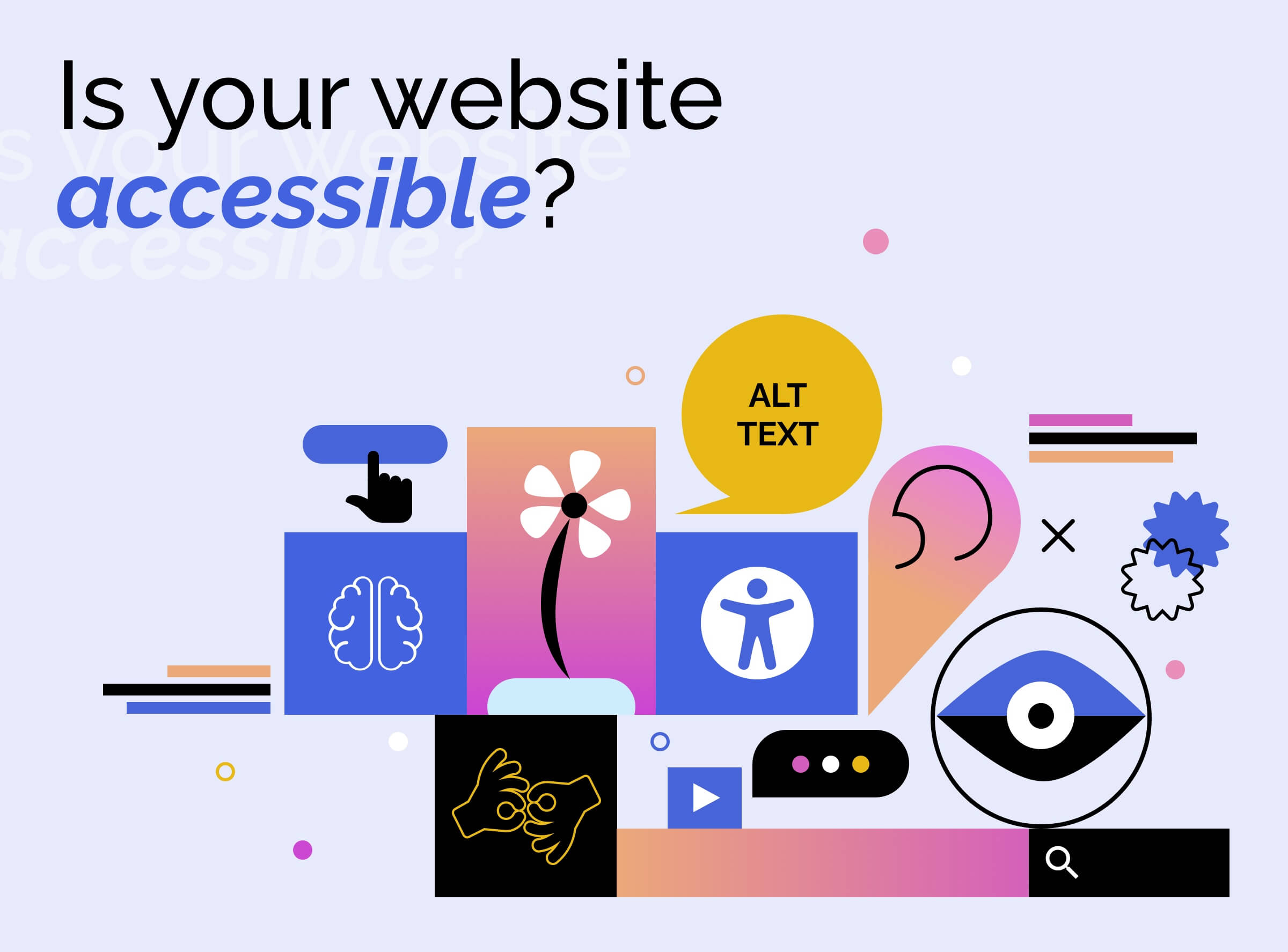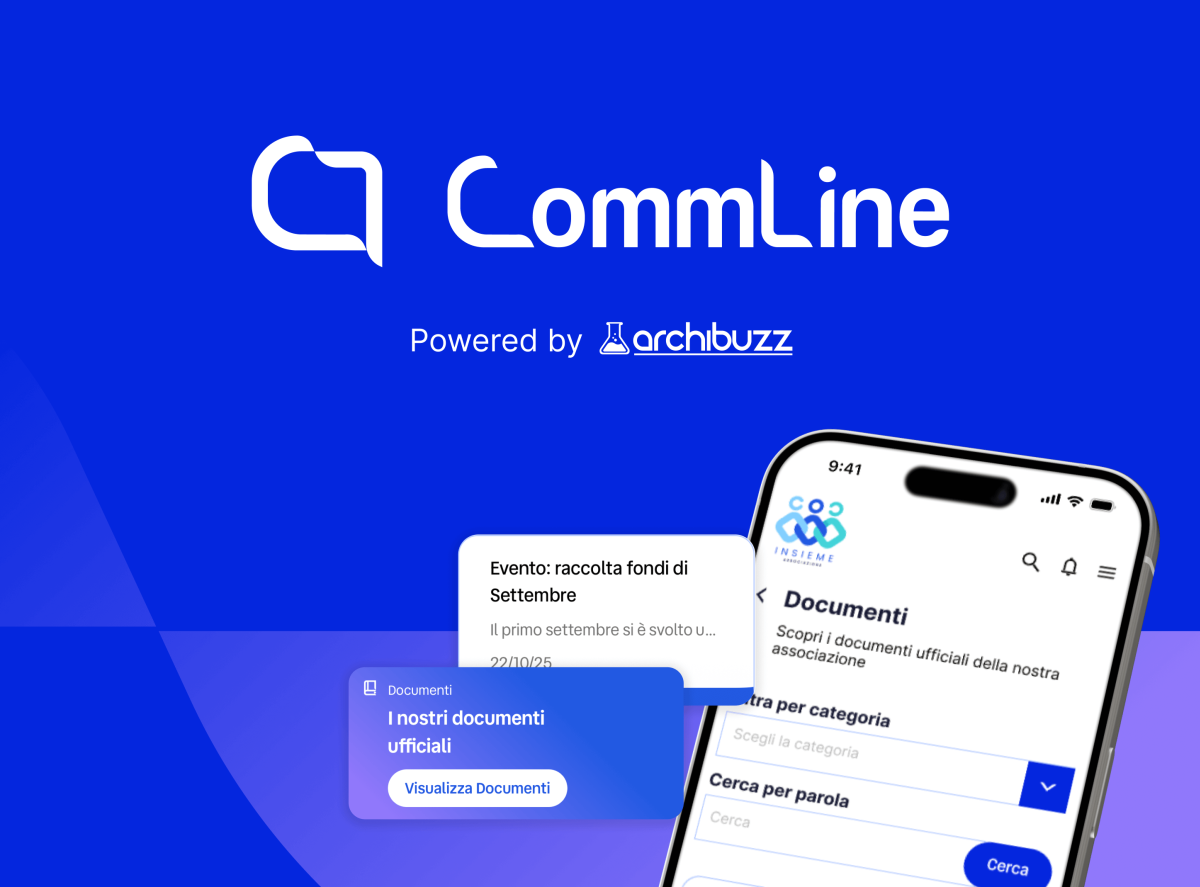
Is your website accessible? Update it according to the standards of the European Accessibility Act
In this article:
- What requirements will your website need to meet?
- Why is it important for your website to be accessible?
- A case study from our experience: the website of the Metropolitan City of Venice
- Accessibility: not just an obligation
What if we told you that by 2025 your website must be accessible?
This is stipulated by the European Accessibility Act (EAA): Member States commit to meeting and respecting certain requirements for some products and services by 2025, including digital ones like websites. In Italy, since 2020, institutional websites are required to publish an accessibility statement. This obligation will be extended, from 28 June 2025, also to the websites of certain private sector companies with more than 10 employees or that generate more than two million euros in annual turnover, as specified in the regulations.
What requirements will your website need to meet?
By 2025, most websites will have to comply with accessibility criteria and requirements.
Specifically:
- Follow the WCAG 2.0 (Web Content Accessibility Guidelines 2.0, currently updated to version 2.2), guidelines drafted by the World Wide Web Consortium (W3C) to make web content more accessible. The AgID (Agency for Digital Italy) has also outlined guidelines adopted as the national standard for creating accessible public websites; they provide specific details on implementing WCAG 2.0, including technical requirements and practical recommendations.
- Publish accessible digital content, for example, videos and audio with subtitles, audio descriptions, and other access modes for people with hearing or visual impairments.
- Be compatible with assistive technologies such as screen readers, virtual keyboards, Braille devices, etc., to allow everyone to navigate and interact with the site.
- Have accessible downloadable documents, such as PDFs, that are properly structured and with readable text, providing alternative text for images and graphics.
All these features should be tested and monitored over time, to pass accessibility tests and comply with the standards set by the European directive.
Why is it important for your website to be accessible?
Because it enables the creation of a digital society that everyone can fully and inclusively participate in, reaching a wider audience. Offering an accessible digital product improves the overall user experience, as it is easy to use for everyone and increases customer satisfaction. Moreover, with the entry into force of the EAA of the European Union, complying with the accessibility standard for digital products means not only avoiding potential penalties but also demonstrating commitment and attention to themes such as equality, respect, and inclusion, towards which direction the Union has been moving for some time.
Even if a company was considered a micro-enterprise (and thus exempt from the directive) or if its sector did not fall under the application of this law, it might be useful to think in terms of future growth and therefore of possible interest in having a more accessible website, or, in any case, evaluate the cost-benefits of having a web page usable by everyone.
A case study from our experience: the website of the Metropolitan City of Venice
The website of the Metropolitan City of Venice, containing tens of thousands of contents, was developed with Drupal 7, nearing its End of Life, and not compliant with the new standards for Public Administration (PA) websites. According to Article 53 of the Digital Administration Code, institutional websites must respect "principles of accessibility, as well as high usability and findability, even by people with disabilities, completeness of information, clarity of language, reliability, ease of consultation, quality, homogeneity, and interoperability."
Following the AGID guidelines, our team standardized the site's UI to the digital services standards for Public Administration. Subsequently, it validated the new platform with accessibility tests to identify possible areas for intervention to make the site fully compliant.
Accessibility: not just an obligation
The guidelines for creating accessible websites are precise and impose the respect of high, but necessary standards. Adapting your site to these guidelines will soon become an obligation, but choosing to make it accessible is primarily a choice towards the service user, a way to communicate with everyone and not exclude anyone. Promoting respect and inclusion and creating value through projects we are involved in is a foundation of our company. Accessibility is an essential step for us to realize this vision.
Our team can help you make your website accessible through accessibility audits, implementation of corrections, and drafting of the accessibility statement.
If you share these principles and would like a website that adheres to accessibility standards and is inclusive for all types of users, contact our team. We will be happy to work together to develop projects that focus on inclusivity and respect for all, creating value together.


